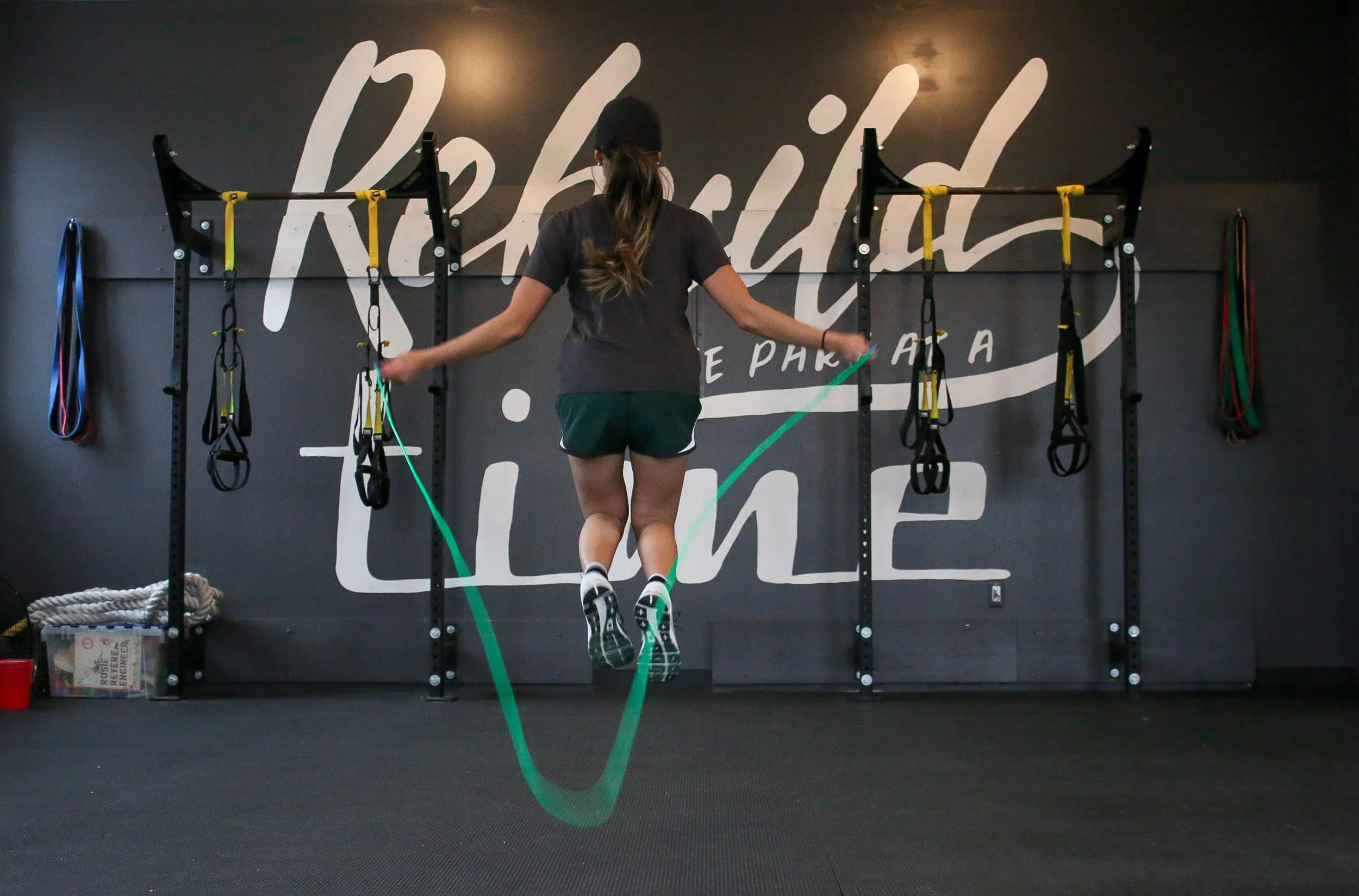Leaking During Double Unders
This is not often discussed, and when it is, it’s often dismissed or made into a joke. But the truth is, this is no joke. This can happen to anyone teenager, postpartum mothers, elite athletes, weekend warriors, and everything in between. Although this is common, most people think their only option is peeing before workouts, using pads, or completely stopping activities that cause leaking. To understand what is causing leaking, we first must understand what it is.
The type of incontinence that you experience during jumping, running, sneezing is called stress urinary incontinence. Leaking occurs when the pressure in your abdominal cavity (intra-abdominal pressure (IAP) is too much for your sphincter to resist and lets some urine through.
There are many things that create increased IAP, some of these things include: being upright, breathing, and using your muscles. Now add weights and jumping you can imagine how much IAP can increase.
Here are 4 tips that you start to implement to navigate why you might be leaking during double unders.
Breath Work
Incorporate breathwork. Working on exhaling more often helps improve how your core/pelvic floor is working. Try incorporating short quick breaths out.
Technique
Try leaning forward slightly. When you keep your ribs stacked over your pelvis, this puts the core and pelvic floor in an improved position to absorb force. This position should look just like a hollow hold. Next time during double unders think “tits over toes” (thank you Sarah Eccles).
Stop Sucking in Your Stomach
When you suck in your stomach your pelvic floor usually follows suit. We actually don’t want this. We need your pelvic floor to relax/contract. When it’s hold tension, this is when your pelvic floor can fatigue and lead to leaking.
See a Pelvic Floor Physical Therapist
Most people think peeing is due simply due to weakness but the truth is it’s usually the opposite. Most people demonstrate an overactive pelvic floor. This can be compared to holding a bicep curl all day long. You can imagine how this would cause your arm to fatigue. This is the same with your pelvic floor. If you are unable to move your pelvic floor through a full range of motion, could be why you are leaking. Other reasons why you could be leaking:
Poor pelvic floor coordination
Prolapse
Hip/core weakness
Because of this, having an assessment by a pelvic floor physical therapist can assess what is going on with your pelvic floor.
Ready to Schedule your Appointment
Our physical therapists in St. George Utah, have advanced, specialized training in the management and treatment of symptoms and dysfunction associated with pelvic organ prolapse. We are devoted to providing one-to-one care with individualized treatment programs in a peaceful and supportive environment.
Call 435-767-1252


